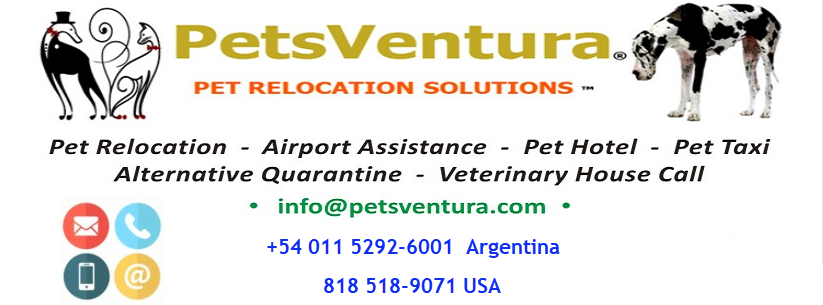
DOCUMENATION INSTRUCTIONS
EXPORT CERTIFICATE
-Is issued by the exporting country
-Must contain all statements and information as required by the Import Permit
Image via Wikipedia
IMPORT PERMIT
- needed to import the animal or product at the time of import
- please contact local CFIA office to apply for an import permit BEFORE the animal(s) or thing(s) are imported.
Here is the link to Animal Health Offices in Canada. Select the Area office in the province that the importation will occur:
CONDITIONS OF IMPORT:
The original of this permit and any other necessary export documentation pertaining to the shipment must be provided for inspection at the first port of entry.
The conditions in this permit can only be changed or amended by a CFIA inspector. Any change to the permit by an unauthorized person will render the permit invalid.
Accompanying export documentation must be issued in either English or French.
The zoosanitary export documentation pertaining to the shipment must clearly describe the animal(s) or thing(s) and the country of origin. The export document must be issued by an inspector of the central veterinary service of the country of origin; or, by a veterinarian designated for such purposes by the central veterinary service of the country of origin and endorsed by an official veterinary inspector of the central veterinary service of the country of origin.
Should the disease status of the country of origin change between the time of issuance of this permit and the time of unrestricted entry into Canada, the import shipment may be refused entry into Canada or be subject to additional quarantine and testing or treatment. Importers will be responsible for any additional incurred costs.
Pet animals or birds being presented for personal importation must be accompanied by the owner/ importer from the country of origin to Canada.
The animal(s), donor animal(s) or thing(s) must originate from a premises certified free from myxomatosis. Animals being presented for importation must not be vaccinated with myxoma virus. Vaccines made with Shope Fibroma virus, however, are acceptable.
1) The premises of origin must have been free from any clinical or epidemiological evidence of myxomatosis for six months prior to the date of exportation.
The animal(s), donor animal(s) or thing(s) must originate from a premises certified free of rabbit viral hemorrhagic disease.
1) The animals or the source animals must have been born on or resident on the premises of origin for the ninety (90) days immediately preceding the date of export. No case of viral hemorrhagic disease (rabbit calicivirus disease) must have been diagnosed on the premises of origin during the ninety (90) days immediately preceding export.
OR
The animals are certified free from rabbit viral hemorrhagic disease (VHD).
1) The animals must have been vaccinated, at least thirty (30) days but not more that ninety (90) days prior to being exported, with an inactivated rabbit calicivirus vaccine recognized for that purpose by the central veterinary authority of the country of origin. The name of the vaccine and date of vaccination must be stated on the health certificate and the certificate of vaccination must be appended. Or; the animal(s) must have been tested for VHD using ELISA or, where applicable, an alternate test acceptable to CFIA, within the thirty (30) days immediately preceding export.
The animal(s) being presented for importation must be certified as inspected by a veterinarian as follows:
1) The animal(s) being presented for importation must be certified as inspected by an inspector designated for such purposes by the central veterinary service of the country of origin during the thirty (30) day period immediately preceding export to Canada and to have been found healthy and free from any clinical evidence of infectious disease and, as far as can be determined, exposure thereto. The date of the examination must be stated on the certificate. The owner must have been instructed to report any suspected illness or death affecting any animal in the herd or flock of origin, between the date of the examination and the date of the shipment.
The animal(s), donor animal(s) or thing(s) being presented for importation must not come into contact with any animals, products or equipment of a lesser zoosanitary health status during the entire required periods of residency, isolation, storage, transportation to the port of exportation.
The animals must be certified to be fit to be transported without undue suffering by reason of infirmity, illness, injury, fatigue or other cause during the expected journey. Entry to Canada may be refused if the manner of shipping is found to be in contravention of transport regulations under the Health of Animals Regulations.
1) The animals must be accompanied by a declaration by the certifying veterinarian or shipper in the country of origin stating: When transport is by air, transportation of the animals is in accordance with the International Air Transport Association (IATA) Live Animal Regulations, approved by the Office International des Epizooties (OIE). For all forms of transport, suitable arrangements have been made for the feeding, watering and care of the animals during transportation, as far as can be determined. Where applicable, the shipment must not include animals that will probably give birth during transportation. Young animals being shipped without their dam have been fully weaned prior to export.
The animal(s), germplasm or thing(s) described on this permit must be shipped by the most direct and appropriate route from the point of export to the address of destination in Canada. Transshipment through another country requires written authorization from the Canadian Food Inspection Agency.
1) Written approval for routing of the shipment of animals through another country must be attached to the permit and accompany the shipment. With the exception of changing planes, animals or germplasm must not be off loaded at any port of call en route.
Documentation for importation must be presented to a CFIA veterinary inspector at the first point of entry. The shipment of animal(s) or thing(s) must be presented to a CFIA veterinary inspector designated under the Health of Animals Act at the first point of entry. Prior arrangements must be made to ensure that inspection will be provided at the appropriate time.
The animal(s) being presented for importation must be quarantined for a minimum of thirty (30) days or a longer period of time as necessary to complete the tests required to meet the import conditions. The animals must be quarantined at the premises previously approved for such purpose by a veterinary inspector designated under the Health of Animals Act and specified on this permit.
The animal(s) must be imported into Canada through a minimum level quarantine facility approved by the Canadian Food Inspection Agency for that purpose.The import quarantine facility must have been previously approved for use as a minimum security quarantine facility by a veterinary inspector designated under the Health of Animals Act. The facility evaluation shall include:location, fencing, physical structure, lighting, water supply, waste disposal, vector and pest control, movement of people, security, cleaning and disinfection protocols. A report that the facility has been approved must have been issued by the Canadian Food Inspection Agency (CFIA). No animal may be moved from their respective quarantine premises until duly discharged by an inspector designated under the Health of Animals Act.On completion of quarantine with negative results on all tests, the animals will be released to the importer and / or owner.
All conveyances (vehicles, containers, or other things) used to transport the qualifying animal(s) or thing(s) from the premises of origin until arrival at the Canadian port of entry must have been cleaned and disinfected in a manner satisfactory to an inspector designated under the Health of Animals Act. All litter and surplus feed must be disposed of by incineration or a manner satisfactory to a inspector designated under the Health of Animals Act.
The importer is responsible for all costs incurred or associated with any testing or treatment of the animal(s) or thing(s) that may be required under the import permit or under the authority of the Health of Animals Act or the Health of Animals Regulations. The importer shall pay all fees for services required in respect of the importation under the National Animal Health Program Cost Recovery Fees Regulations in place at the time of importation.
Consideration of an application necessary for issuance of a permit to import the described animal or thing is subject to Class 1 fees.
Failure to comply with the conditions contained in this permit or with the provisions of the Health of Animals Act and Regulations may result in the cancellation of this permit and will result in the forfeiture to the Crown of the animal(s) or thing(s) imported or in the removal of the animal(s) or thing(s) from Canada, all without compensation to, and at the expense of the importer. No person shall import any animal(s) or thing(s) into Canada from any country unless the animal(s) or thing(s) meet the conditions that are shown on the export certificate issued by the exporting country. The importer(s) are responsible for the animal(s) or thing(s) imported, their health, fitness, soundness, freedom from disease, active or latent and genetic or other defects. Where the Canadian Food Inspection Agency (CFIA) carries out tests and takes precautions when animal(s) or thing(s) are imported into Canada to reduce the risk of the introduction and spread of disease in Canada, such tests and precautions do not constitute and are not a warranty, guarantee, assurance, undertaking or anything similar that the animals imported are healthy, fit, sound, free from disease, active or latent or genetic or other defects and such tests and precautions do not relieve or lessen the importer's responsibility as set out above. The importer, his heirs, executors, successors and assigns release and discharges Her Majesty the Queen in right of Canada and the CFIA of and from all claims and demands, damages, actions or causes of action arising or to arise by reason of the importation of the animals and agrees to indemnify and save harmless Her Majesty the Queen in right of Canada and the CFIA from and against all actions, damages, claims and demands which may be brought in respect of or arising out of the importation of such animal(s) or thing(s), their health, fitness, soundness, freedom or otherwise from disease, active or latent, genetic or other defects.
The issuance of this permit does not relieve the owner or the importer of the obligation to comply with any other relevant federal, provincial or municipal legislation or requirement.
The terms used in the accompanying export documentation must be consistent with definitions under the Health of Animals Act and Regulations.
1) "Animal" includes birds, bees, hatching eggs, embryos and fertilized ova / eggs.



No comments:
Post a Comment